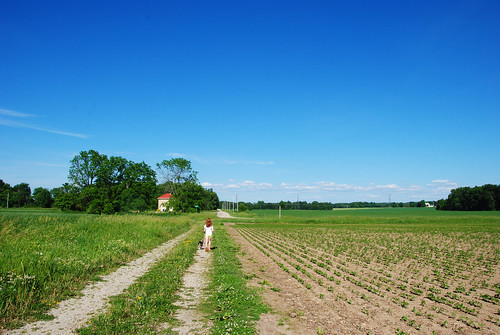
There is so much in this interview with Alice Munro, from 1994 in The Paris Review, that I want to go on quoting and quoting from it. Here is a sample. I urge you to read the whole thing (pour yourself a cup of tea and enjoy the length, depth, and breadth of the conversation).
MUNRO
I was like a Victorian daughter—the pressure to marry was so great, one felt it was something to get out of the way: Well, I’ll get that done, and they can’t bug me about it, and then I’ll be a real person and my life will begin. I think I married to be able to write, to settle down and give my attention back to the important thing. Sometimes now when I look back at those early years I think, This was a hard-hearted young woman. I’m a far more conventional woman now than I was then.
INTERVIEWER
Doesn’t any young artist, on some level, have to be hard-hearted?
MUNRO
It’s worse if you’re a woman. I want to keep ringing up my children and saying, Are you sure you’re all right? I didn’t mean to be such a . . . Which of course would make them furious because it implies that they’re some kind of damaged goods. Some part of me was absent for those children, and children detect things like that. Not that I neglected them, but I wasn’t wholly absorbed. When my oldest daughter was about two, she’d come to where I was sitting at the typewriter, and I would bat her away with one hand and type with the other. I’ve told her that. This was bad because it made her the adversary to what was most important to me. I feel I’ve done everything backwards: this totally driven writer at the time when the kids were little and desperately needed me. And now, when they don’t need me at all, I love them so much. I moon around the house and think, There used to be a lot more family dinners.
:: And one final anecdote, from the interviewers' introduction...
After a while, Munro took us to Goderich, a bigger town, the county seat, where she installed us in the Bedford Hotel on the square across from the courthouse. The hotel is a nineteenth-century building with comfortable rooms (twin beds and no air-conditioning) that would seem to lodge a librarian or a frontier schoolteacher in one of Munro’s stories. Over the next three days, we talked in her home, but never with the tape recorder on. We conducted the interview in our small room at the hotel, as Munro wanted to keep “the business out of the house.” Both Munro and her husband grew up within twenty miles of where they now live; they knew the history of almost every building we passed, admired, or ate inside. We asked what sort of literary community was available in the immediate area. Although there is a library in Goderich, we were told the nearest good bookstore was in Stratford, some thirty miles away. When we asked whether there were any other local writers, she drove us past a ramshackle house where a man sat bare chested on the back stoop, crouched over a typewriter, surrounded by cats. “He’s out there every day,” she said. “Rain or shine. I don’t know him, but I’m dying of curiosity to find out what he’s up to.”
Labels: feminism, interviews, mothering, writing
